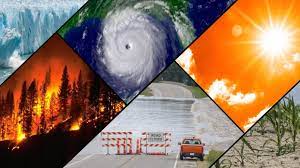Pakistan confronting worst-ever climatic disaster due to emission of rich countries

Liaquat Ali
Islamabad: Former President SAARC Chamber of Commerce and Industry Iftikhar Ali Malik on Wednesday said that Pakistan is among the hardest hit country in the world confronting the worst ever climatic disaster in memory because of emissions of other rich countries.
Addressing a seminar as keynote speaker on “Pakistan and Response of Leading Emitters ” he said around the world 2022 has been a year of climate catastrophe including drought, floods, mega-fires, typhoons, and Pakistan’s flash floods and its large-scale destruction opened the eyes of all over the world which he added is bigger global wake up call, said a press release.
He said one-third of Pakistan was submerged wiping out hundreds of villages from the map and snatching livelihood from poor statra of the society rendering millions homeless and displacing 33 million.
He said unfortunately developed countries have so far after a lapse of one year given assistance to Pakistan less than peanuts.
He said global “Justice is Underwater”. Although some progress has been made in recent years to elevate climate justice to a higher place on the global agenda but the world’s leading emitters still have not risen to the occasion he added.
He said it’s known to everyone globally that the world’s rich countries are like that polluting factories that have deprived Pakistan of the long-term climatic conditions on which it has built its economy, homes, farms and infrastructure.
He said if there was a global climate count, Pakistan would have a strong case against other high-income countries for failing to limit climate-changing greenhouse gas emissions (GHGs).
But since there is no global climate count (yet) governments should act like one and allocate the attributable climate losses and damages to those countries that are historically responsible for them, he added.
He said the costs of Pakistan floods are enormous to the tune of more than US$30 billion and the coming months brought increased hunger, disease, poverty, and other social complications.
He said rich countries should bear their fair share of the attributable costs of climate adaptation, emergency response and recovery in countries that played little to no role in causing today’s calamities.
He said too often rich and powerful countries deny their historical responsibilities- whether for colonial, slavery, or climate damage.
Replying to a question, he said that the developing world will not forget the leading role that rich countries have played in creating today’s worldwide climate disasters.
As climate-related losses rapidly mount, global demands for climate Justice will only grow.
He said all countries must be decarbonized their energy systems and manage their land and ecosystems responsibly and sustainably.
He said Pakistan urgently needs result-oriented support not “pledges” from the world for rehabilitation of its damaged infrastructure, construction of destroyed houses, and financial assistance to flood affectees.




